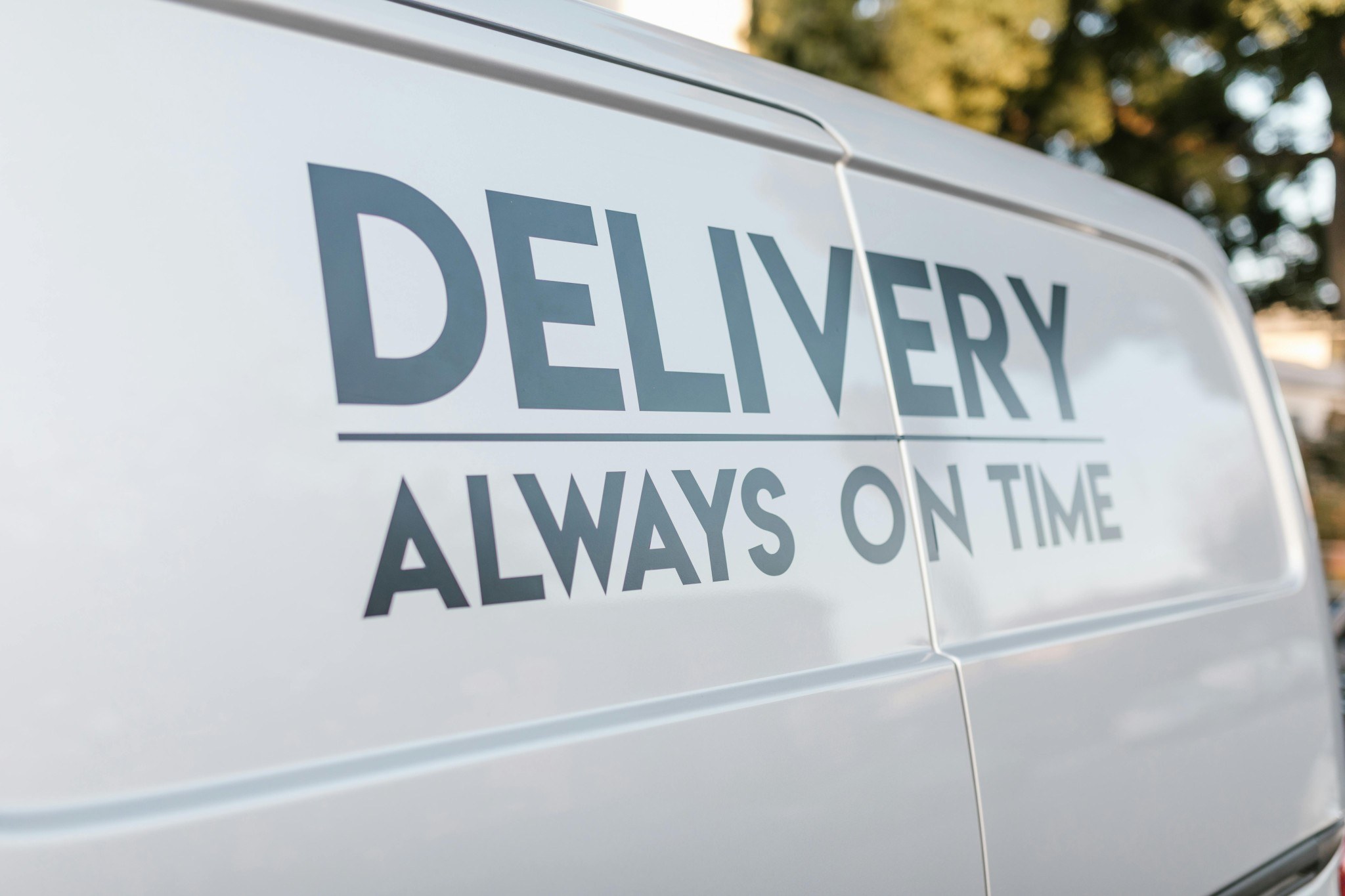
In today’s rapidly evolving logistics and supply chain industries, real-time tracking has become a game-changer.
Whether it’s freight management or the everyday operations of moving goods, real-time tracking technology provides unprecedented transparency, efficiency, and control. As businesses and logistics providers work to meet the increasing demands of speed, reliability, and customer satisfaction, incorporating real-time tracking into freight management strategies has become essential.
In this article, we’ll explore the many benefits of real-time tracking in freight management, how it revolutionises logistics, and why freight professionals should embrace this technology to stay competitive.
Let's Get Straight To The Point
Real-time tracking in freight management enhances visibility, efficiency, and customer service. It allows businesses to monitor shipments in real-time using technologies like GPS, RFID, and IoT.
Key benefits include improved route optimisation, reduced idle time, better risk management, and cost savings through fuel efficiency. It also strengthens relationships with suppliers and carriers, improves security, and supports data-driven decision-making.
While investing in real-time tracking may require upfront costs, it provides long-term value by reducing delays and operational costs. For successful implementation, businesses must integrate with existing systems, invest in appropriate technology, and train staff accordingly.
What is Real-Time Tracking in Freight Management?
Before diving into the benefits, it’s important to understand what real-time tracking is and how it works in the context of freight management. Real-time tracking refers to the ability to monitor the precise location of shipments as they move through the supply chain, offering continuous updates on the status and whereabouts of goods in transit.
Using GPS, RFID technology, IoT devices, and cloud-based software, freight managers, carriers, and other stakeholders can view shipment data in real time. This visibility helps them make informed decisions, mitigate potential issues, and streamline the entire transportation process.
How Does Real-Time Tracking Work?
Real-time tracking relies on advanced technologies such as:
GPS (Global Positioning System): Allows for pinpointing the exact location of a vehicle or shipment.
RFID (Radio Frequency Identification): Helps to track goods via tags that communicate their location.
IoT (Internet of Things): Integrates sensors that provide continuous data on temperature, humidity, and other factors influencing the freight.
Cloud-Based Platforms: Enable seamless sharing of real-time data across stakeholders, allowing everyone to stay updated.
Together, these systems provide a complete picture of a shipment’s journey, from pickup to delivery.
Key Benefits of Real-Time Tracking in Freight Management

Improved Visibility And Control
One of the most significant advantages of real-time tracking in freight management is the enhanced visibility it offers. Freight professionals can track shipments continuously, providing a clear overview of where goods are at any given moment. This eliminates the uncertainty that often comes with traditional logistics methods.
Monitor Shipments Anytime, Anywhere
With real-time tracking, stakeholders can access data from any location, 24/7. Whether you’re in the office or on the go, real-time tracking allows you to monitor shipments in real-time, ensuring complete oversight and helping you respond promptly to any disruptions.
Accurate Delivery Times
Real-time updates give managers an accurate view of the expected arrival times of shipments, improving the ability to communicate delivery times to customers. This transparency reduces the risk of delays and improves overall customer satisfaction.
Enhanced Efficiency In Freight Operations
The efficiency of freight operations directly impacts cost and time management. Real-time tracking enables freight managers to streamline operations, leading to improved resource allocation, reduced idle time, and quicker decision-making.
Reduced Idle Time
With the ability to track vehicles and shipments in real time, freight managers can quickly detect delays or detours. This helps ensure that vehicles are optimally routed and minimises unnecessary stops or delays, ultimately reducing idle time and improving the overall efficiency of the freight operation.
Optimised Routes
Through real-time tracking, freight professionals can monitor traffic conditions, road closures, and other logistical challenges. This allows for the dynamic rerouting of shipments to avoid delays and ensure quicker delivery. By optimising routes based on live data, companies can cut down on travel time and fuel costs.
Better Risk Management
The logistics industry faces various risks, including accidents, delays, theft, and damage to goods. Real-time tracking significantly improves risk management by providing critical insights and allowing businesses to act quickly when problems arise.

Early Detection of Problems
Whether it’s a shipment that’s delayed, a vehicle that’s broken down, or an unexpected traffic jam, real-time tracking enables freight managers to detect issues early. This early warning system allows them to take corrective actions swiftly—whether that means rerouting a truck, notifying customers of potential delays, or even dispatching another vehicle.
Increased Security
Real-time tracking enhances the security of freight by enabling constant monitoring of the location of high-value shipments. In the event of theft or hijacking, the ability to track the shipment in real time helps authorities recover stolen goods faster, reducing loss and enhancing overall security.
Improved Customer Service And Satisfaction
In today’s competitive freight and logistics landscape, offering superior customer service is crucial. Real-time tracking empowers freight companies to provide higher levels of service by offering customers more transparency and control over their shipments.
Instant Updates for Customers
With real-time tracking, customers can track their shipments on demand. They receive updates on the shipment’s status, estimated delivery time, and any potential delays. This level of transparency gives customers peace of mind and helps build trust between the freight company and its clientele.
Enhanced Communication
For freight people, staying in constant communication with customers is key. Real-time tracking enables better communication by providing accurate information regarding delivery times, potential delays, and proactive solutions to issues that may arise. This helps reduce customer frustration and fosters positive relationships.
Cost Savings
While the initial investment in real-time tracking technology may seem costly, the long-term financial benefits are substantial. From reduced delays to optimised routes, businesses can see significant savings by adopting real-time tracking in their freight operations.
Fuel Efficiency
One of the key areas where real-time tracking leads to cost savings is fuel consumption. By optimising routes, minimising detours, and reducing idle time, freight managers can significantly cut down on fuel usage, which is a major expense in transportation.
Reduced Operational Costs
With enhanced visibility and better resource allocation, freight companies can reduce operational costs. For example, the ability to track shipments in real time can prevent delays that might otherwise require additional handling or storage costs. Additionally, the ability to optimise routes and reduce fuel consumption also contributes to cost savings.
Strengthened Supplier And Carrier Relationships
Real-time tracking doesn’t just benefit freight managers and customers—it also enhances relationships with suppliers and carriers. By providing better visibility into shipments, real-time tracking helps build trust between stakeholders, making collaborations smoother and more transparent.
Better Coordination with Carriers
When freight people have access to real-time data, they can more easily coordinate with carriers to ensure the timely delivery of goods. If delays occur, they can immediately communicate with carriers to find solutions, preventing bottlenecks in the supply chain.
Streamlined Collaboration with Suppliers
Real-time tracking helps suppliers stay updated on the status of goods in transit, which can improve their planning and response times. For example, if an expected delivery is delayed, the supplier can make adjustments in production schedules or inventory management accordingly.
Increased Operational Scalability
As businesses grow, managing larger volumes of freight becomes increasingly complex. Real-time tracking can facilitate growth by providing better oversight of an expanding network of shipments and routes.
Efficient Scaling of Operations
Real-time tracking allows businesses to scale operations without sacrificing control. As freight volumes increase, managers can monitor multiple shipments at once, track new routes, and adjust strategies in real-time to meet the growing demand.
Data-Driven Decision Making
With real-time tracking, freight professionals can analyse data and identify patterns or trends over time. This data-driven approach allows businesses to continuously refine their strategies, optimise their operations, and make informed decisions that support long-term growth.
Key Considerations for Implementing Real-Time Tracking in Freight Management
While real-time tracking offers a wide range of benefits, there are a few key considerations for businesses looking to implement this technology in their freight management processes.
Integration With Existing Systems
Before implementing real-time tracking, companies should ensure that the tracking system integrates seamlessly with their existing logistics and transportation management systems. This ensures that all data flows smoothly between platforms, eliminating the need for manual input and reducing the risk of errors.
Investment In Technology
Investing in the right real-time tracking technology is essential. Businesses should assess their specific needs, whether they require GPS, RFID, IoT sensors, or a combination of these technologies, and choose a solution that provides the most value for their operations.
Training And Support
For freight people to make the most of real-time tracking, proper training is necessary. Companies should provide staff with the skills and knowledge to use the tracking systems effectively and understand the insights generated. Additionally, ongoing support from technology providers is crucial to ensure smooth operations and troubleshoot any issues that may arise.

Conclusion
The benefits of real-time tracking in freight management are undeniable. From enhanced visibility and control to improved customer service, risk management, and cost savings, adopting this technology can transform the way businesses manage freight. As the logistics industry continues to evolve, embracing real-time tracking is no longer just an option but a necessity for those looking to stay competitive and deliver exceptional value to customers.
By implementing real-time tracking, freight professionals can ensure their operations are more efficient, secure, and responsive, leading to better outcomes for both businesses and customers alike. Whether you're a small business or a large logistics provider, the integration of real-time tracking into your freight management strategy is a crucial step toward achieving long-term success.
FAQs
How Does Real-Time Tracking Reduce Delays And Disruptions?
By monitoring shipments live, you can identify delays or route changes immediately. This enables companies to reroute, adjust schedules, or communicate with customers proactively to minimise disruptions.
Can Real-Time Tracking Improve Freight Security?
Yes! With real-time location data, it’s easier to detect theft, unauthorised movements, or unplanned stops. Alerts can be triggered if a shipment goes off course or if there’s any unusual activity, enhancing overall security.
What Role Does Real-Time Tracking Play In Cost Reduction?
By optimising routes, avoiding delays, and improving efficiency, real-time tracking can help companies reduce fuel costs, avoid detention fees, and lower inventory holding costs due to more accurate delivery times.
Is Real-Time Tracking Beneficial For Both Small And Large Businesses?
Yes! Both small and large businesses can benefit from real-time tracking. For small businesses, it’s an affordable way to gain visibility and improve service, while large companies can leverage it to manage complex, global supply chains more efficiently.
How Does Real-Time Tracking Impact Customer Communication?
Customers can receive live updates on the status and location of their shipments. This not only boosts transparency but also allows customers to plan better around delivery times and stay informed about any potential delays or issues.
